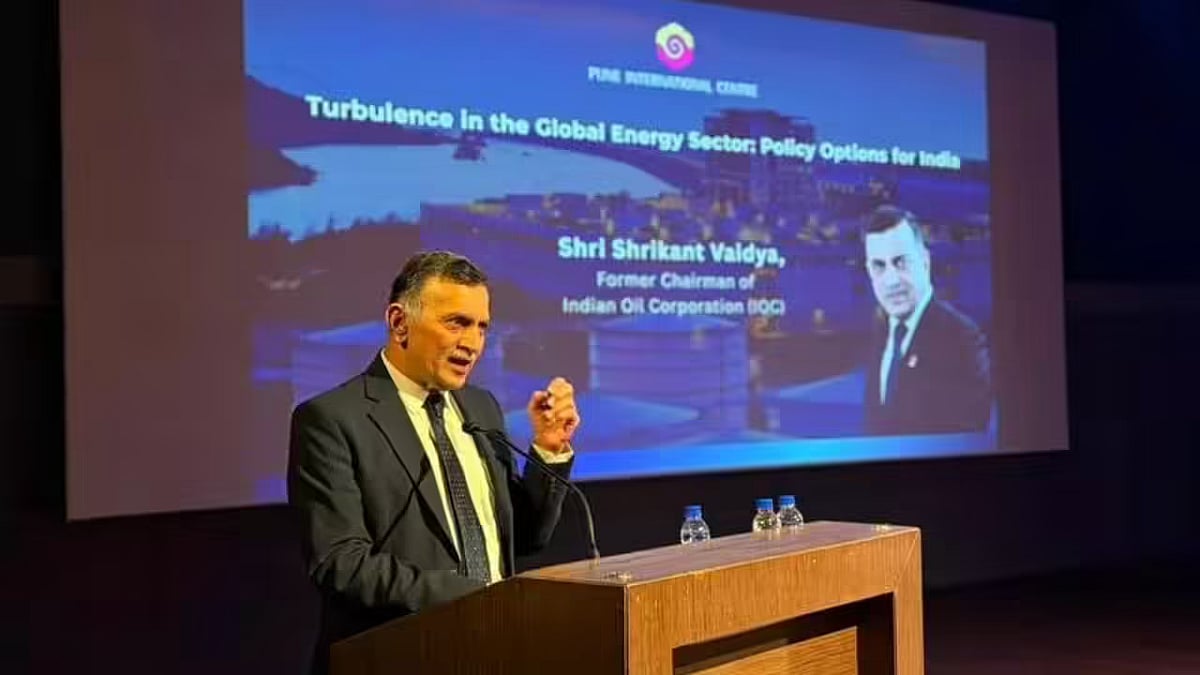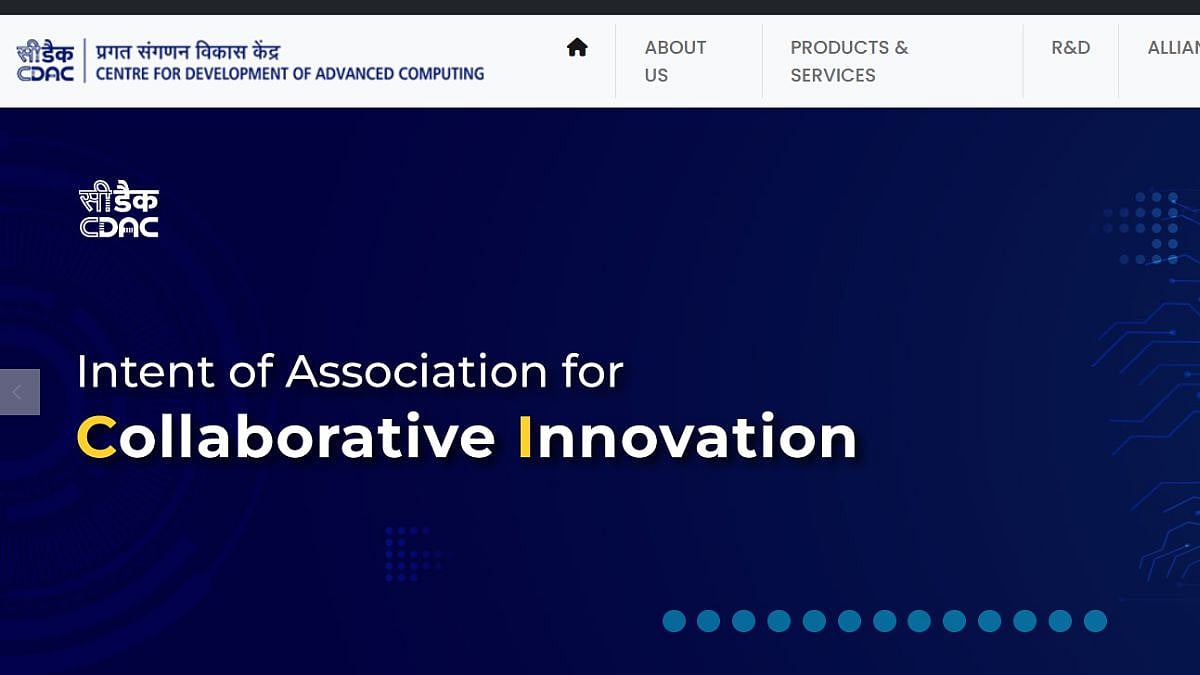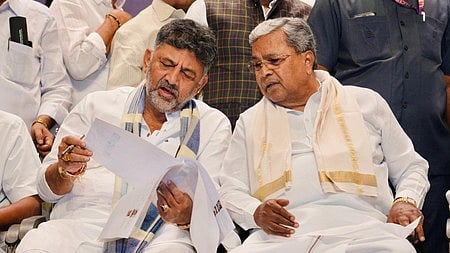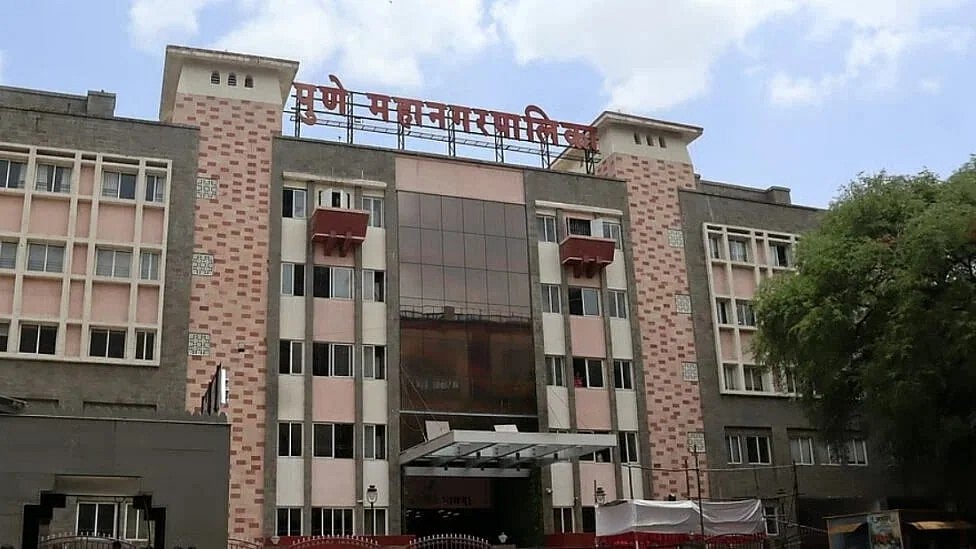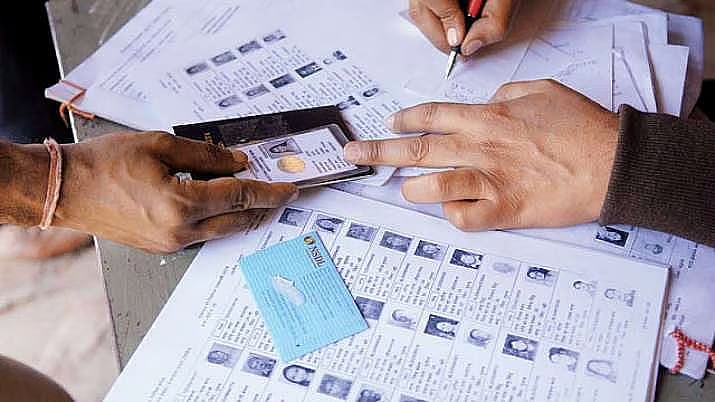Pune: “Though air travel has become very economical, it is very harmful to the environment in terms of greenhouse gas emissions. Studies have shown that the number of flights between Mumbai and Pune is very high. When Mumbai-Pune is well connected for travel, it is like a crime to travel by air for this distance, said former chairman of Indian Oil Corporation (IOC) Shrikant Vaidya.
He also mentioned that the solution of 'Sustainable Aviation Fuel' is not very effective to reduce pollution, but rather developing high-speed rail services on the lines of China-Japan will reduce carbon emissions.
Vaidya was speaking on the topic 'Turbulence in the Global Energy Sector: Policy Options for India' organised by 'Pune International Centre' (PIC). Lieutenant General (Retd) Vinayak Patankar, a trustee of 'PIC', was present on the occasion. Vaidya commented on issues such as the global status of crude oil, oil imports from India, and other options for energy generation.
Vaidya said, ‘Currently, about 7 million barrels of crude oil are used daily in the world for aviation fuel alone. As the number of passengers is also increasing rapidly, the fuel consumption will go up to about 9 million barrels. The greenhouse gas emissions from flights on the Pune-Mumbai route are about four times more than those of railways.”
“To reduce carbon emissions, the government needs to promote rail travel by creating a high-speed rail network. For this, it is necessary to focus on creating railway infrastructure like China and Japan. Connecting the eight important metropolitan cities of the country with high-speed rail will reduce air services in these cities. 60 per cent of the country’s flights are from eight major cities. Even if high-speed rail replaces 30 per cent of these flights, it will be an important step in reducing carbon emissions,” he explained.
Regarding India’s dependence on crude oil imports, Vaidya said, “India should consider building large oil reserves to protect itself from fluctuations in global prices and supply shortages. Also, it should consider adopting an ‘equity oil’ policy of buying stakes in foreign oil fields. This can reduce import costs. Currently, prices are stable in the global market. New oil reserves are being discovered in many countries. Therefore, the current time is right for this policy.”
“Before the Russia-Ukraine war, India’s oil purchases from Russia were only 0.2 per cent. However, due to the concessions received from Russia, oil purchases from Russia increased to 40 per cent. However, rather than increasing dependence on one country, it would be better to buy 20 per cent from Russia and 40 to 50 per cent from Middle Eastern countries. Currently, India consumes about 1.6 barrels of oil per person per year. While the US consumes 20, and China consumes 10. Therefore, India has a long way to go to become a developed economy,” he added.

‘Renewable options are expensive’
‘There is no truth in the talk that solar energy is very cheap. The cost of storing solar energy is high. Also, hydrogen production is expensive. Fossil fuel companies have now become energy companies. Companies are investing in areas like green hydrogen, electricity transmission,’ Vaidya said.
